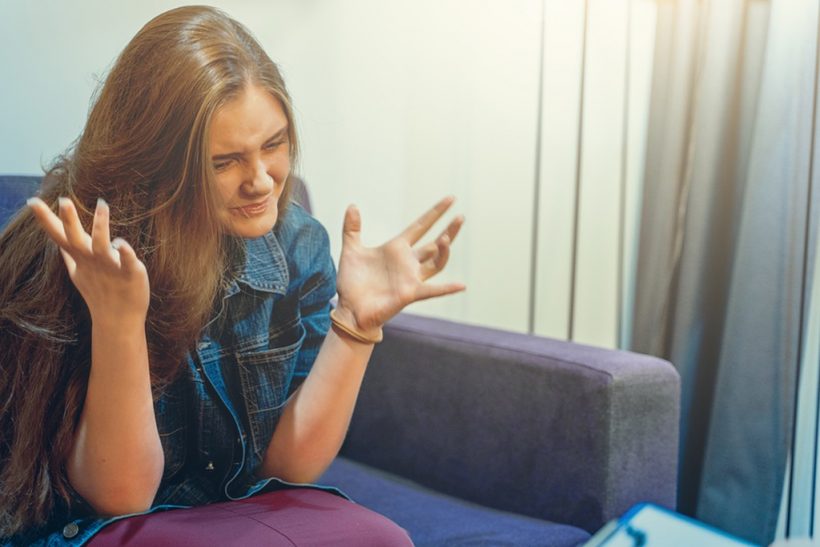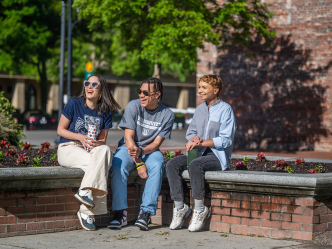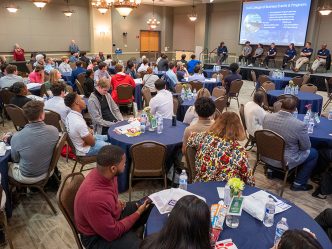As people across the country shelter in place, wear masks in public, socially distance and take a variety of additional measures to ensure their physical health, members of the Augusta University community should also recognize that the COVID-19 crisis can take a toll on their mental health.
Students and employees face different issues as the pandemic rages on, but the stress it causes is universal. Mental health professionals from both the university and health system discussed the concerns that may be facing different sectors of the Augusta University community, tips for maintaining good mental health through this stressful time, and where to find help if it’s needed.
Students
The biggest concerns students reported as COVID-19 took hold of the Augusta area — and Augusta University — came as a bit of a surprise to Dr. Elena Petrova, director of Student Counseling & Psychological Services, and her staff.
“We saw that, at least in terms of our center, we thought our students would be coming back reporting a lot more anxiety about COVID-19, maybe more anxiety and fears about losing loved ones — and frankly that didn’t come until a little bit later. The initial concerns had very much to do about academics,” she said.
She said on reflection it made sense, as Augusta University moved classroom instruction to an online-only format and closed campus near the end of the spring semester. Many students, especially at the undergraduate level, were unfamiliar with online classes. Learning the new platforms along with their class concepts caused a lot of concern, as well as preparing for and taking online exams.

Now that the semester is over, Petrova said she’s seeing how the COVID-19 crisis is impacting students in other ways.
“We’re now sort of seeing the impact in other aspects of life, like financial concerns, concerns with access to technology. Not being able to have a job, or being concerned about going to a job and not being as protected at the job,” she said. “They’re worried about losing loved ones, or having to take care of loved ones at home who maybe have contracted the virus, or losing a loved one from a nursing home, or someone who was not in a good health condition.”
For some, it is a more generalized anxiety about the pandemic and what it means for them and their safety. As students return to campus in the fall, Petrova said the counseling center is expecting an increase in students reporting stress over the upcoming semester while recovering from the stressful months through the spring and summer.
She said the center is also expecting an increase in students reporting symptoms of grief. It’s something we are all dealing with.
“We’re all grieving. We can’t do the things we like to do. We’re grieving that we can’t be outside socializing with our friends. We’re grieving that we can’t visit loved ones. We’re grieving that we can’t learn and engage in extracurricular activities the way we want to. We’re grieving the loss of a loved one’s health if they are sick. There’s just grief on multitudes of levels,” she said.
To help, the counseling center has shifted its model of service to a telehealth format, so that students can access services no matter where they live. They also utilize Microsoft Teams and WebEx, which is useful for group counseling and workshops. In addition, the center is offering emergency call-ins for students who are in stress, experience suicidal thoughts or thoughts of hurting someone else. By calling the center at 706-737-1471, students can reach a counselor on emergency rotation. The center is open 8 a.m.-5 p.m. Monday through Friday.
Petrova said students who already use the center know where to find them. She wants students who need support but have not reached out yet to know they are still here and are accessible to all students.
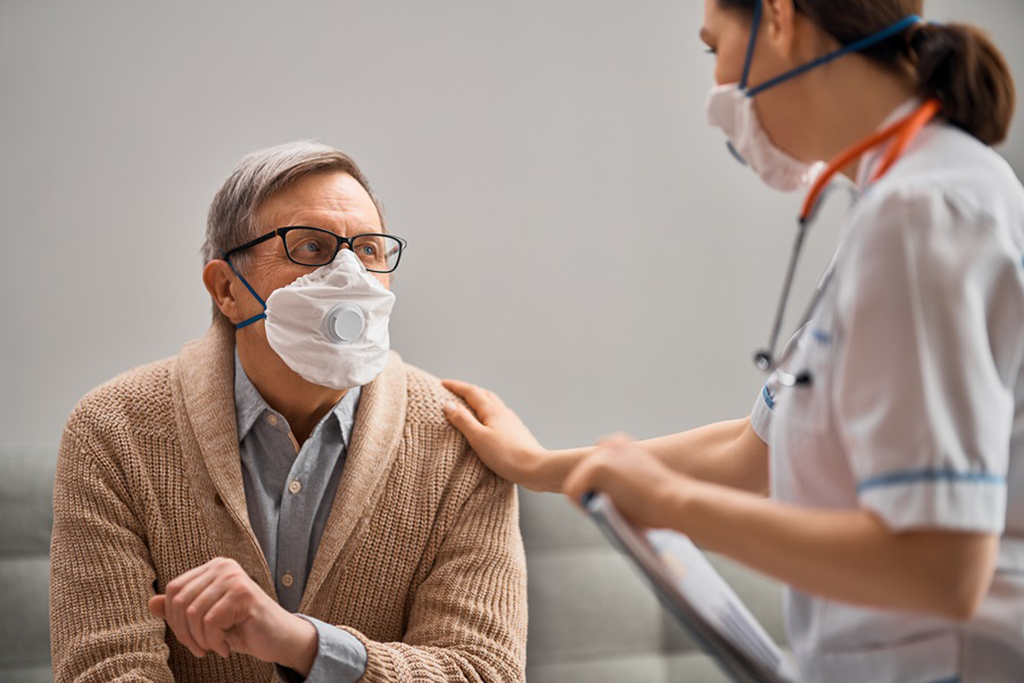
Employees
Employees at Augusta University experience different levels of stress depending upon their specific setting, said Dr. Vaughn McCall, chair of the Department of Psychiatry and Health Behavior and executive vice dean at the Medical College of Georgia.
For health care workers who are doing general patient care but are not working on the front lines, there is general anxiety about where all of this is heading, in addition to the rapidly changing information. Who should be tested? Who should not be tested? Should you isolate? Should you not isolate? Do you go back to work or not? The rules seem to be constantly changing.
“It’s come so fast, so for myself and other people who are not on the front line, there’s a certain amount of unease over not knowing what to do when,” McCall said.
There is also the fear that anyone you come in contact with could be infected, an asymptomatic carrier. In psychiatry and other low-risk disciplines, some workers are older and don’t feel comfortable interacting with patients face-to-face, or are concerned about bringing illness home to their small children.
“I think because this is so new and its properties are still being discovered, that some people are just sort of knocked back on their heels and not quite sure what to do, so they take the most conservative approach,” McCall said. “Obviously this is a very individual decision.”
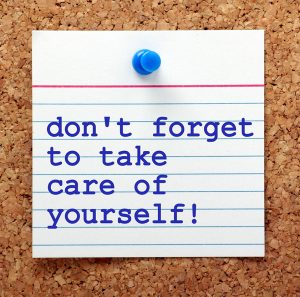
On the other side of the scale, for those on the front lines caring for COVID-19 patients, some are working to the point of exhaustion. There is a risk of feeling ineffective because we don’t have adequate treatments for COVID-19 beyond supportive care, which can be intensive.
“It’s always problematic for physicians to feel ineffective, that you’re not making a difference,” McCall said. “Even before COVID-19, there’s been discussion about burnout for several years. When you look at the symptoms that go along with so-called burnout, they include emotional exhaustion and a feeling of having lost a purpose—not making a difference anymore. It’s easy to see how that would be accentuated in the presence of COVID-19.”
He said what these physicians, nurses and physical therapists are likely experiencing is burnout taken to a higher level.
To help minimize the stress, McCall recommends taking steps to keep things from becoming worse than they have to be. For example, pay attention to how much information you’re consuming. How much additional information do you need to know about the health work environment than you are already getting?
“I think there does come a point of oversaturation,” he said.
He recommends getting enough sleep and limiting news consumption. He also believes in maintaining some degree of community, but carefully choosing who you spend your virtual time with. People are reacting in different ways, ranging from overly nonchalant to easily strung out.
“I think, ideally, trying to have some community with people who have a happy balance, if a balance can be made between legitimate concerns over health without reaching a state of panic,” McCall said. “If the only people you really have community with at work are people who are themselves in a constant state of panic, this is not going to be good for you, either. Spend time with people who seem to be in good psychological health.”
Right now, health care professionals need to self-monitor and pay attention to how well they’re sleeping, exercising and socializing. Watch for unexplained or uncontrollable crying spells and experiencing a constant state of fear or tension. Any sort of suicidal thinking immediately requires contacting a mental health professional. Ask for help if you feel you are struggling with any of these symptoms.
Augusta University has an Employee and Faculty Assistance Program available to all employees, and participates in an Employee Assistance Program through the University System of Georgia.
“Not talking to somebody when you’re feeling bad is clearly a mistake,” McCall said.
Tips for Safeguarding Mental Health
- Maintain regular bed time/wake time
- Get enough sleep
- Do not skip meals
- Shower and dress daily
- Create a time budget/schedule
- Make to-do lists
- Engage in some type of movement (walk, yoga, floor exercises, etc.)
- Limit news consumption
- Do relaxing activities, especially in the evening (reading, coloring, meditation, prayer, etc.)
- Stay connected to family and friends
- Avoid alcohol and drugs
Free Mental Health Resources
For Employees:
- Augusta University Employee Assistance Program: 24/7, 1-888-960-3305, www.espyr.com
- AU Employee-Faculty Assistance Program: 8 a.m.-5 p.m. Monday-Friday, 706-721-2599
For Students:
- Student Counseling & Psychological Services: 8 a.m.-5 p.m. Monday-Friday, 706-737-1471
- Georgia COVID-19 Emotional Support Line: 24/7, 866-399-8938
- Georgia Crisis & Access Line (GCAL): 24/7, 1-800-715-4225, mygcal.com
- CARES Warm Line: 88:30 a.m.-11 p.m. daily, 1-844-326-5400, call or text
- Georgia Department of Health COVID-19 Hotline: 844-442-2681
- Peer-to-Peer Warmline, 24/7: 888-945-1414, www.peer2peer.center
 Augusta University
Augusta University
